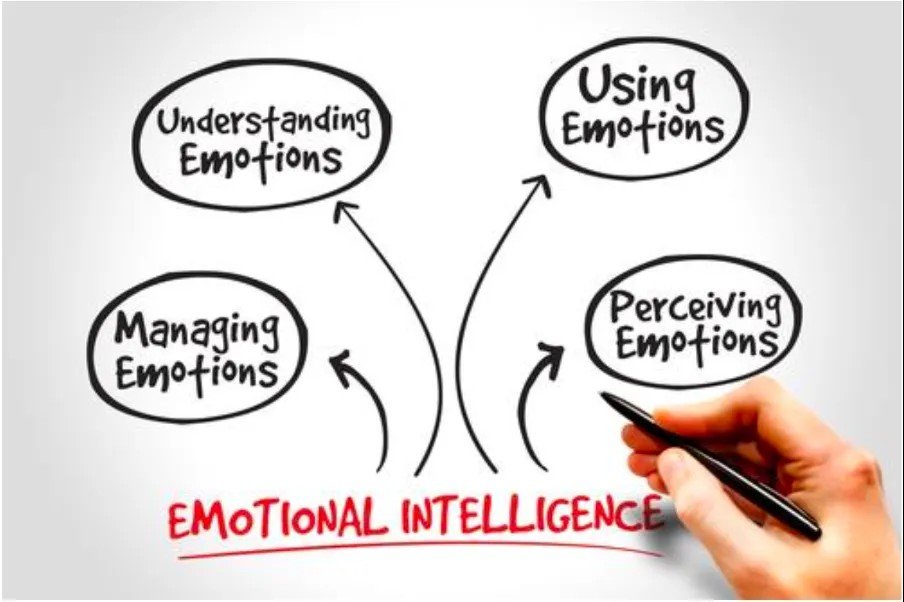Emotional Intelligence Series: Introduction to Emotional Intelligence
At TALY, we’re all about helping businesses unlock personality profiling insights to drive better people outcomes.
The foundation of this is our unique and holistic personality profiling tool that captures key dimensions across the Five Factors of your personality, your Emotional Intelligence, your risk profile, resilience and more.
A key part of this is the inclusion of Emotional Intelligence. We think Emotional Intelligence is super important (and so do a lot of other people) – but exactly what is Emotional Intelligence, why does it matter, and how can we best manage it?
Over the next few weeks, we want to pull apart the Emotional Intelligence elements for you. Today, let’s start with an overview…
What is Emotional Intelligence?
Emotional Intelligence (or sometimes referred to EI or EQ – Emotional Quotient) is a measure of your skills in perceiving, understanding and using emotions. This may be:
Your own emotions or the emotions of those around you
Overtly shared in conversation or perceived through behaviour, sensing, body language and more
In understanding others to build connections, or using emotions to create new ideas and outcomes
Basically, the idea is that the better we are at perceiving and understanding our own emotions, and connecting with the emotions of those around us, the better we’ll be able to build strong inter-personal relationships.
It has its origins from thinking around the mid-1900’s that there is potentially more than one type of ‘intelligence’ (anyone still talking about street smarts?).
The term Emotional Intelligence was first coined in the 1980’s, but Daniel Goleman’s book ‘Emotional Intelligence: Why It Can Matter More Than IQ’ really brought the idea to the masses and lead to EI being an established idea in understanding people and relationships today.
3 things you need to know about Emotional Intelligence
There is a lot of buzz around Emotional Intelligence – a lot of thinking, some competing thoughts, and perhaps a bit of mis-understanding.
If you’re new to the world of EI, here are three important things to keep in mind…
It is a skill, not a trait – you want to make it better
Unlike personality, EI is something you want to continue to work on, to improve, to get better at. It isn’t fixed, and with awareness, training and coaching, you can become a master.
It is an interpersonal skill
It is not just about having emotional intelligence, it is about using emotional intelligence to connect with others. This connection may be in how you understand others, how you moderate your behaviour, how you lead others, how you build ideas for others, and more. But the key is it’s about your connection with the world and those around you.
It is impacted by your core Five Factor personality
TALY is the first profiling tool to bring Five Factor and EI together into one solution. And we’ve uncovered some important findings that tell us our EI is strongly impacted by our core underlying personality. Get in touch to find out more about what this means in recruitment and in managing your teams!
What impact does it have at work?
Well, lots 😜
A review of major studies in the area by Kaur and Sharma (2019) confirmed EI to be “influential for working affectivity, enhancing job satisfaction and attaining organisational commitment. With improved commitment the turnover intention gets reduced significantly. Also, high EI results in team building by emotionally efficient leader, thus, refining work culture to successfully enhance work performance”.
So satisfaction, culture and retention all head upwards!
The School of Life, in partnership with Microsoft put together a neat little summary that is worth a look and outlines some of the key implications.
This study by 6seconds.org also proved some critical, tangible changes linked to improvements in Emotional Intelligence across the business.
What do we measure in the TALY Emotional Intelligence model?
As with all things at TALY, we’re not making this stuff up. We believe that Emotional Intelligence is a critical element in understanding others, so when it came to building our tool, we leant on established and proven thinking in this area from Mayer and Salavoy (read here on how Mayer was involved right from the start on exploring Emotional Intelligence)
This model suggests that there are four key dimensions to evaluating and understanding someone’s emotional intelligence. The Mayer and Salovey model of Emotional Intelligence is illustrated below.
PERCEIVING YOUR EMOTIONS
The ability to perceive emotions in oneself and express them accurately to others. Also the ability to perceive emotions in other people.
HARNESSING EMOTIONS
The ability to generate, use, and feel emotion as necessary to communicate feelings or employ them in other cognitive processes
UNDERSTANDING OTHERS
The ability to understand the meanings behind emotional information and the way emotions combine and change in the context of relationships.
MANAGING EMOTIONS
The ability to be open to feelings, and to modulate them in oneself and others so as to promote personal understanding and growth.
Over the next four weeks, we’ll share a little on each of these dimensions and the implications they can have for individuals, teams and leaders.
The TALY approach to personality profiling brings together a unique mix of Five Factor and Emotional Intelligence profiling to help organisations, hiring managers and teams to make better decisions about recruitment and teams.
Get in touch to find out more… we love talking about this stuff! Or Book a Demo today to see how easy it is to start using TALY in your business.



